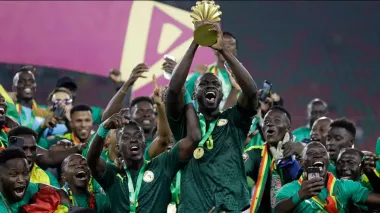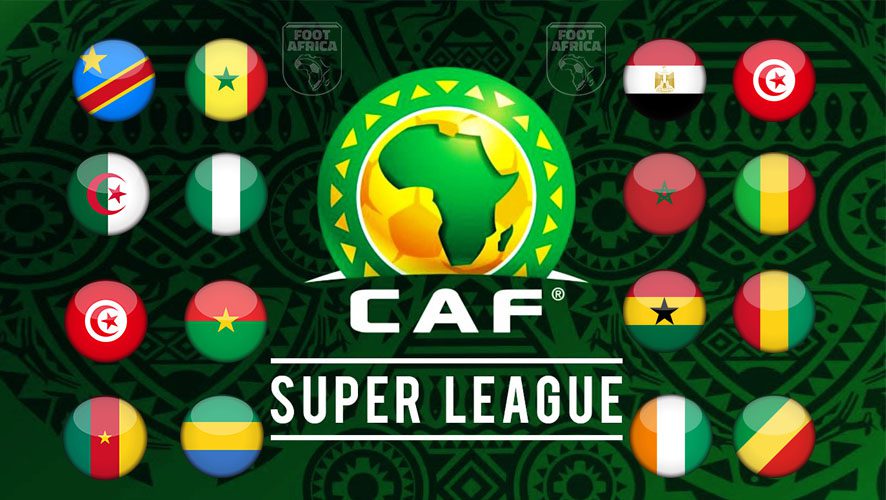

Through CAF's initiative, Africa, a region with enormous football potential, has seen a tremendous shift. First, thanks to thorough infrastructure development, training facilities have greatly improved. Young people with talent thus have more opportunities.
Additionally, CAF's financial support helps to organize prestigious competitions, promoting international visibility. Strategic alliances have also facilitated the dissemination of knowledge and skills. In the end, CAF's initiatives have increased interest in football and uncovered a wealth of excellent players throughout Africa.
Introduction to Football in Africa
The Confederation of African Football (CAF) has prioritized the growth of football in Africa, and its programs have had a considerable influence on the region. First, the CAF has implemented several initiatives to develop young talent. Thanks to programs like the CAF Youth Championship, young athletes can show off their abilities and earn exposure.
Additionally, CAF has opened regional development hubs all over Africa. These facilities act as training centers and provide coaching courses, enabling regional coaches to increase their skills. As a result, coaching standards rise, raising the football level on the continent.
CAF has implemented grassroots development programs that concentrate on grassroots sports promotion. This strategy ensures that football is available to kids from all socioeconomic situations, enabling them to improve their abilities and enthusiasm for the sport.
In general, CAF's activities have been essential in the growth of football in Africa. CAF has greatly impacted the continent, providing an environment for African football to flourish through developing young talent, establishing development centers, organizing competitions, and promoting grassroots participation.
Governments, Footballs, and Platitudes
Governments and football have a history of close ties, with politicians frequently utilizing the game to further their political agendas and make bold claims. Platitudes used impact has little impact on the growth of football.
First, promises and declarations of support for football by governments are not uncommon. They stress the role of the sport in nurturing youth growth, building national pride, and promoting national togetherness.
However, there is frequently a deficit in turning these promises into actual deeds. Governments may fail to invest in stadiums, training facilities, and grassroots initiatives by allocating insufficient cash for sports infrastructure.
Extracting the Football Development Model from African Football
To extract the football development model from African football, it is necessary to examine the distinctive features and tactics. First, African football exhibits a unique style of play distinguished by dexterity, quickness, and flair.
African nations also place a high priority on grassroots development, developing potential from an early age. Future stars are found and developed through programs like youth academies, school initiatives, and regional competitions.
Additionally, community involvement is highly valued in African football. Football teams frequently act as community hubs, engaging with the neighborhood and tackling social concerns through outreach initiatives. The African football scouting and recruitment system has succeeded in locating talent. Scouts actively look for talented players in neighborhood leagues, schools, and unorganized settings, allowing young athletes to demonstrate their abilities.
Origins of African Football:
African football has its roots in the colonial era when European powers first brought the game to the continent. Initially, colonial officials and expatriates were the main players in football.
But as the game became more well-known, it began to draw African players, who took up the sport and organized their teams. These early African football clubs frequently developed in populated cities under the heavy colonial influence.
Early in the 20th century, the first official African football competitions started to take shape. African players had venues to display their talents in competitions like the South African Bantu Football Association (1922) and the Gambia Cup (1920).

source - https://ghanasoccernet.com/african-super-league-set-to-be-launched-next-month-kicks-off-in-2023
As African nations began to free themselves from colonial domination in the 1950s and 1960s, nationalistic enthusiasm increased. National teams were founded, and football became a potent symbol of pride and unification for newly independent nations.
An important turning point for African football was the founding of the Confederation of African Football (CAF) in 1957. With the organization of regional and continental competitions, CAF rose to become the continent's football regulatory body.
African football has developed over the years, and its players have significantly impacted world football. African football's popularity has increased due to African athletes' success in foreign leagues and tournaments.
African football still thrives today, with the region producing world-class athletes and hosting important competitions like the Africa Cup of Nations. The beginnings of African football set the groundwork for its development and demonstrated the fervor, talent, and tenacity of African players.
African Football and Football Organizations:

source - https://www.bellanaija.com/2022/07/asisat-oshoala-2022-caf-awards/
The numerous continentally and international football federations have close ties to African football. Several organizations are essential to the sport's growth, administration, and promotion on the African continent.
The Confederation of African Football (CAF) serves as the organization that oversees football in Africa on a continental scale. The Africa Cup of Nations, which exhibits the top talent from African countries, is one of the regional and continental competitions that CAF organizes.
CAF supports national associations in growing the sport at all levels through training programs, initiatives to create capacity, and financial assistance. Additionally, African football has close relations with international bodies like FIFA, the game's worldwide governing body. FIFA collaborates closely with CAF and its member associations to advance football development and handle regional issues.
African football gains from collaborations with other continental federations like the Asian Football Confederation (AFC) and the Union of European Football Associations (UEFA). Through friendly games, exchange programs, and knowledge sharing, these partnerships create cross-cultural exchanges and aid in developing African football.
The African Football Development Model:
The African Football Development Model includes a distinctive combination of traits and tactics that have aided in the expansion and accomplishment of football throughout the continent. It highlights a unique playing style distinguished by skill, agility, and flare.
The concept focuses on grassroots development, cultivating young talent through youth academies and neighborhood competitions from an early age. Football clubs serve as social hubs and deal with societal issues, making community interaction another important factor. Infrastructure investments and efficient scouting and recruitment methods all aid in the growth of African football.
FAQs
Q: How important are scouting and talent identification in African football development?
A: Talent scouting and identification systems are essential for identifying emerging talent globally. Effective scouting networks aid in identifying and developing prospective athletes, assuring a steady stream of qualified competitors for domestic and international championships.
Q: How has the success of African players in international leagues influenced the development of African football?
A: African football has seen increased involvement and global recognition thanks to the success stories of its players in prestigious international leagues and tournaments.
Q: How can partnerships with global football organizations contribute to African football development?
A: Partnerships with groups like FIFA and regional federations offer resources like funding, technical support, training opportunities, and opportunities for collaboration, all of which help to advance infrastructure, governance, and talent development.
Conclusion
Over the years, there has been great growth and advancement in the development of African football. The continent has taken to the activity, showing a distinct brand of play that emphasizes talent, quickness, and flair. The growth of African football has centered on grassroots initiatives, developing new talent through youth academies, school initiatives, and regional competitions.
Football teams have become social hubs and have addressed social concerns due to community interaction. Recruiting and scouting systems have successfully located and elevated talented athletes. The Confederation of African Football (CAF) has been crucial in helping to plan competitions, fund projects, and promote the sport's growth.